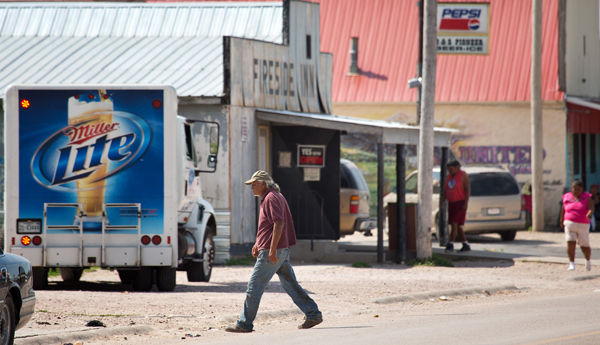Blog
Search
Nebraska ABC seeks bill for alcohol impact areas including Whiteclay
November 9, 2015

The state LCB hopes the legislature will revive a bill to allow the state and localities to create alcohol-impact zones, where bans on single-serving containers of alcohol could be adopted. New Nebraska Governor Pete Rickets, Attorney General Doug Peterson, and Liquor Control Commission (LCB) Chair Bob Batt are a few of the state officials engaging in a conversation about potential actions to start addressing the multitude of alcohol problems, harms, and dangers stemming from Whiteclay. Washington State originally pioneered the idea of alcohol impact areas, allowing for restrictions on liquor licenses and bans on single-sale cans. Alcohol industry lobbyists successfully shot down such a bill in the Nebraska legislature in 2012, calling it an unfair advantage for businesses outside the alcohol-impact area.
An alcohol-impact zone containing Whiteclay is one step among many that are urgently needed to address the overwhelming amounts of alcohol-related harm and death experienced by members of the Oglala-Sioux Nation. A successful bill could positively impact not only Whiteclay and Pine Ridge Reservation, but also other towns and areas in Nebraska as well.
Help us hold Big Alcohol accountable for the harm its products cause.
| GET ACTION ALERTS AND eNEWS |
STAY CONNECTED    |
CONTACT US 24 Belvedere St. San Rafael, CA 94901 415-456-5692 |
SUPPORT US Terms of Service & Privacy Policy |
Copyright © 2026 Alcohol Justice. All Rights Reserved.
Joomla! is Free Software released under the GNU General Public License.


